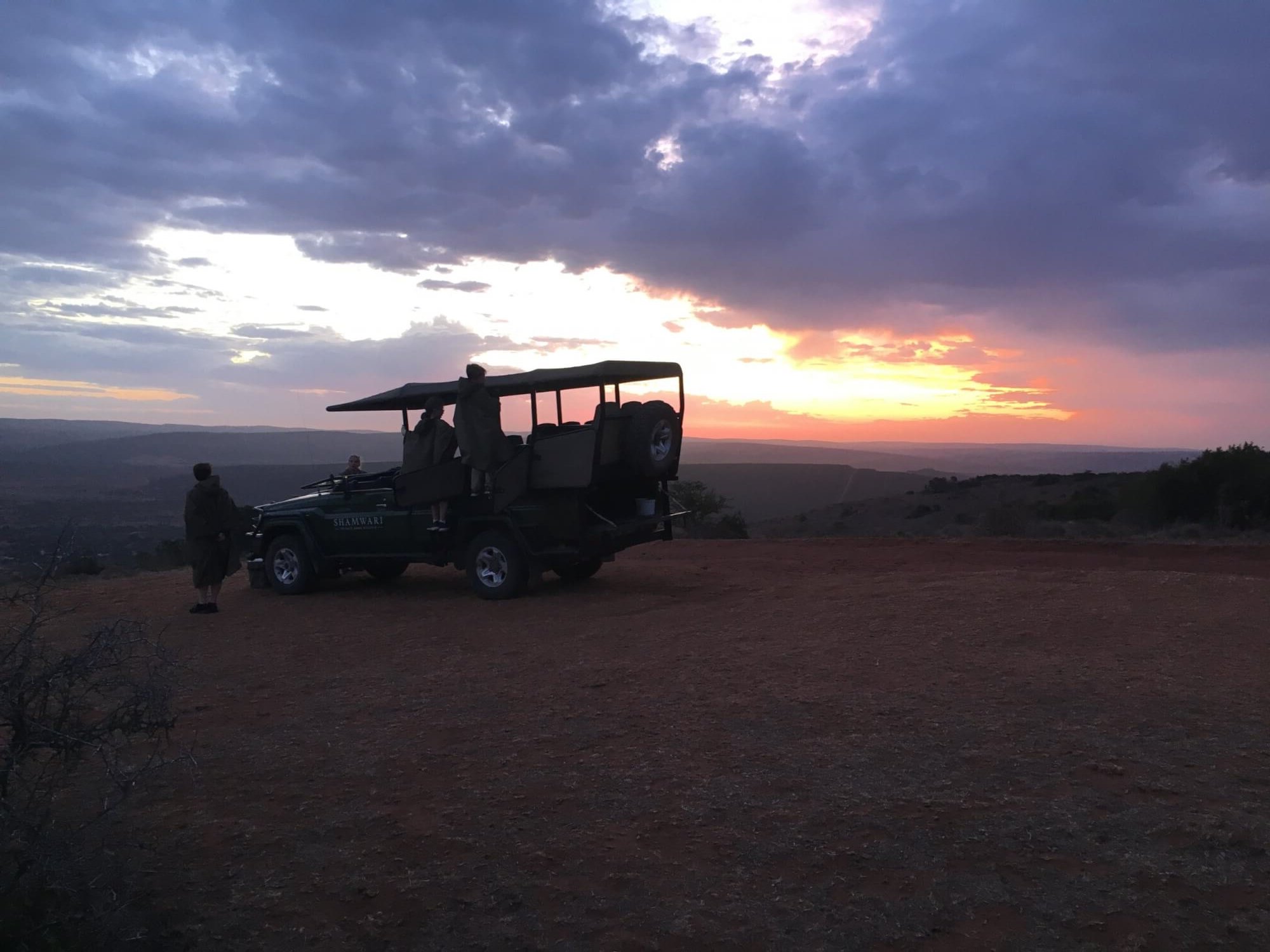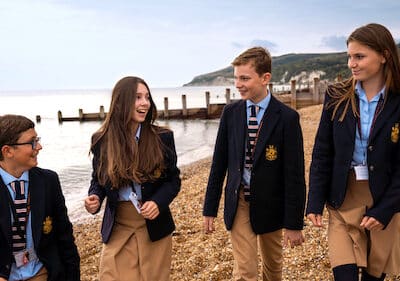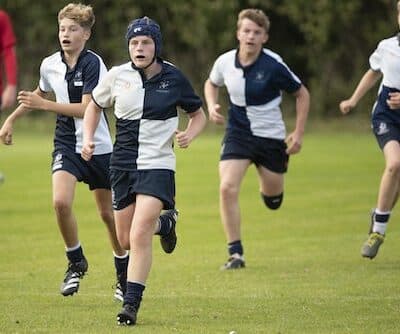Face to face with a lioness
Welcome back and Happy New Year to one and all!
Do you remember your senior school assemblies? We would contend there is nothing better than the Head’s address as he/she studiously plants words of comfort and joy, ringing in the new year and a new term full of direction and opportunity.
But for the Headmaster, who must deliver the first official words of the new year to his/her expectant flock after time away, what moral/topical homework to hand over?
Taking you behind the scenes and back to school, Mr Lawson’s beginning-of-term assembly:
So there I was, face to face with the growling, fully-grown lioness. It is true to say that my assemblies are prone to the odd bit of artistic licence, an exaggeration or two, embellishment and gilding of the truth to give my anecdotes a little bit of extra sparkle. But in this case, just over a week ago, I was faced with a wild lion not more than pouncing distance away, and it was very, very scary.
I know that ‘what I did in my holidays’ is about the lamest first homework to submit to you; very primary school. But the problem with beginning-of-term assemblies is they are at the very beginning of term and, you see, I have been away for most of the vacation, not just enjoying a very big treat of a family trip to South Africa but also detoxing from Election/Brexit/Impeachment, so I haven’t really got much to say that is topical, and all I have to go on is my holidays. Although from a distance, it did seem that the news at home was pretty quiet over Christmas with the whole country breathing a post-election sigh of relief and getting on with turkey, stuffing, family arguments, train delays, and other such British festive traditions.
We had been on safari on a large game reserve in the Eastern Cape for about three days. Our guide throughout that wonderful experience was called Jessica; pronounced Jiss in South African. After the obligatory astonishment and hilarity that is necessary when you find someone has the same name as you (my wife’s name is Jessica, as you know) – a banal ritual that is the shared relief that there is an easy ice-breaker in the conversation. In reality it is quite expected that you will frequently meet people with the same name as you, unless you are Moon Unit Zappa or Zowie Bowie, I suppose. The English do the same thing for rainstorms or hot days, immediately relaxing into a conversation about the weather in the knowledge that our interlocutor will be similarly relieved to have something to say. I have often wondered whether you could go through life having conversations with new people without small talk: ‘er hello, nice to meet you, I’m John’, ‘Tom, pleased to meet you, growing antibiotic resistance is a more serious problem than people understand, don’t you think?’ to which John presumably gives a blank expression, or if more confident, asks if I am some sort of medical lobbyist. To which I assure him, no, I just thought the issue of our overuse of antibiotics is a more important topic than, say, the fact it is raining. By this time, John has met someone else called John and they are laughing away at the remarkable coincidence. So no, I don’t think it is possible to do without small talk, more’s the pity.
Ranger Jess was a superb guide to the bush. She was studying flowers in her spare time for a difficult university qualification. She was one of the most experienced rangers on the reserve, macho enough when you saw her wrestling a huge Toyota Land Cruiser up a steep rutted track or loading her rifle, but also hugely sympathetic to the animals in the park. We would slow to let families of animals (we were lucky enough to see baby elephants, lion cubs, warthog piglets) get past without frightening them. If she got out of the jeep to look at tracks or whatever, she would carefully first clap to ensure she didn’t startle any animals before heading in that direction. Whenever she talked about dangerous animals, grumpy rhinos or hippos, for example, she would use the term ‘rispict’ – in other words she was aware of the fears, needs, and temperament of the fiercer or bigger animals, reading their body language and giving due caution to the wildness of the environment. In short, Ranger Jess gave wife Jess and I every confidence to ask to go on a walking safari, wife Jess wanting, as you would expect from a biology teacher, to get close to the plants, insects, etc – the little things you can’t really appreciate from the safety of the raised seating area of a jeep. But this is where it got a bit interesting. Ranger Jess said she had suffered a concussion a few days before and would rather not risk looking after us for the walking safari. Instead we were to have Jacques, adding ‘you might find his Afrikaans accent a bit difficult to understand.’ This should have been a clue.
Ranger Jacques was cut from different cloth, shall we say, to the conservationist-minded animal empath Jess. When wife Jess started with ‘I am looking forward to seeing the butterflies, plants and flowers’, he responded ‘Na, Jiss is the flower girl. We’ll see some real animals eh bru’, chucked his rifle into the passenger seat and off we went to drive to a spot deep in the bush to walk from. Having seen plenty of springbok already on safari, I had been mildly disappointed not to have seen them do their signature jumping prance (recall that Ranger Jess would patiently wait for springbok families to pass safely in front of the vehicle.) Jacques, on the other hand, provided that sight immediately by gunning the Toyota out of the camp in a cloud of dust, bombing along the track with the alarmed springbok pinging left and right out of his way.
Soon we spotted a group of Vervet monkeys screeching and running away from a riverbed area. They were clearly very alarmed by something. They do that when a predator is close by, Jacques agreed, but told us that they are also pretty stupid and do this all the time when there is nothing. Nevertheless, if I were drawing a cartoon version of this moment, there would be Vervet monkeys holding up a big white sign with LION in capital letters and a clear arrow pointing to the riverbed.
Jacques chose to park next to the riverbed.
He got us out and headed down the steep narrow track between bush cover and the watering hole, looking over his shoulder and saying that he probably ought to do a safety briefing which he choose to deliver in concise form – stay close and if anything happens stand behind him completely still – do not run. Previously all he had said on the matter was ‘we would be fine as long as we can run and climb trees’, which to him was jolly banter but I’m not sure I can climb trees and the last time I ran was 1996.
Suddenly: ‘grrr…’ I can’t do justice to the snarl: a gravelly baritone… but more menacing, genuinely animal, wild. A sound that itself stirred some ancestral caveman fear but, combined with the glinting teeth in the jaws of a lioness looking down at us from the bank on our left, a stone’s throw away, was really very scary indeed. I am not used to the emotion of fear. Worry, concern, and so on, I deal with regularly, but not true naked fear. I don’t even usually concede a weight disadvantage but there I was faced with a fully-grown lioness at 150-200 kilograms and one of nature’s most powerful predators.
Jacques motioned us to stay still and get behind him, which we did as he gripped his rifle tightly. Jess and I stood very literally still, frozen in the position of walking, like children playing musical statues. I wondered then, what to do if the lion attacked. As Jacques admitted later, the lion was too close for him to swing his rifle around, chamber a round, aim and fire before being taken down, given we were within pouncing distance. It occurred to me that it would be very painful to be mauled by a lion. And, as an English gentleman, I was also quite miffed at the thought of my wife being eaten. I was frankly less concerned for Jacques, whose bravado contributed to this situation, but racing through my head was the question of whether I could get the rifle out of his death grip and work out how to use it in time while, I hoped, the lion was momentarily distracted tucking into Jacques-flavoured Boerwoorst. But Jacques looked the lioness in the eye and raised his hands and shouted very loudly. She considered us for an age-long second more… and slowly, majestically, turned into the bush. All this I saw only out of the corner of my eye, having kept as still as a statue looking forward only at Jess who was creditably calm throughout.
After that encounter in the first five minutes the rest of the walking safari was not really noteworthy. We had crept back past the lion-bush with Jacques stalking with the now bolt-ready rifle to shoulder back to the vehicle, and then much to my astonishment Jacques decided to press on on foot. Twenty minutes later he turned to us and said ‘that’s my legs going wobbly’ and explained that this lioness the ranger knew to have two cubs that season, fortunately for us she was not near them at the time else we would surely have been Lawson carpaccio. As we trudged along (Jacques in front, then Jess, and me at the back – which is unnerving because in every wildlife documentary I have ever seen it is the lame impala at the back that is toast), Jess said stoically ‘At least it will make a good assembly’ which shows her sangfroid over the incident. But I am not sure she is right unless I can derive a moral from the story.
Well, certainly I have replaced the cry wolf moral metaphor with ‘when a vervet monkey cries lion’ based on seeing that story play out exactly. But, more importantly, the whole experience did get a different message across to me. It really jolted me into thinking more deeply about the effect of our species on the environment. The game reserve’s riverbeds had largely dried up thanks to six years of low rainfall, which was felt to be the result of disturbed global weather systems. In the context of my trip to South Africa, every restaurant loo, hotel bathroom, and public convenience, exhorted water saving measures. There was a bucket in the shower so that when you ran it to get the temperature right you saved the so-called ‘grey water’ for watering plants and so on.
The lion backed down in the face of Jacques because we humans are the apex predator. If the rivers were any drier, if the lives of her cubs were in greater peril, then she may have made a different calculation. Reflexively, I resist the claims of our immediate extinction through climate change – I do not think the cause is advanced by scaremongering. People need to know the facts, to know, for example, that the UK has made progress in reducing CO2 emissions to 19th century levels and has reforested the country nearly to the same proportion it was in mediaeval times; as well as the facts concerning rising global mean temperatures and how damaging this can be to the planet over time.
But what has become clearer to me, in these last few days, is we may have great dominance of nature as the apex of all apex predators, but with that apogee comes responsibility, and if we do not treat our ecosystems, water sources and environments with ‘rispict’, as Ranger Jess would say, then it might just bite back.
I wish you a very happy and successful New Year. Thank you.








